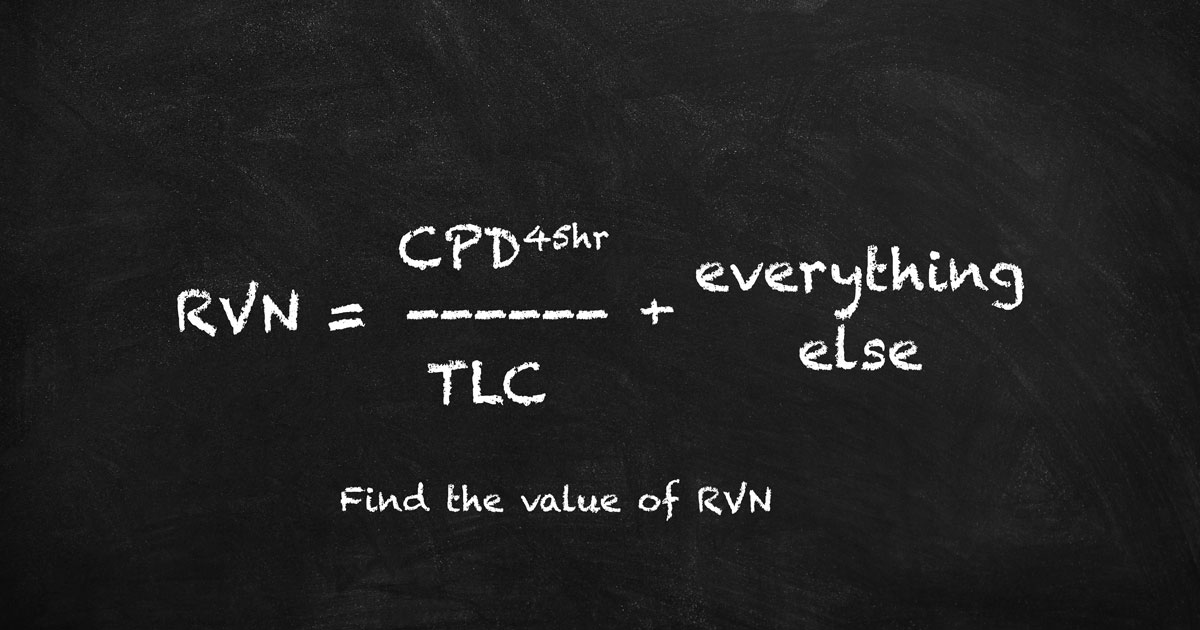I’ve lost count of the number of times I’ve heard anecdotally about the value of vet nurses to the vet team. This is always nice to hear; whether it’s about me or vet nurses as a whole, it’s heart-warming to hear – but does that pay the bills?
For some reason, while we are getting more factual data from areas such as VN Futures and the SIII survey, there still seems to be a barrier to putting real figures to the value of a vet nurse.
We know many vets salaries are worked out on how much turnover they provide for the clinic, and maybe someday there will be similar for some vet nurse roles (as I suggested in a previous blog), but, for now, I’d like to focus on looking at the value of a vet nurse from a different viewpoint: how much do we cost to replace?
Sum of the parts valuation

If your vet nurse leaves and you need to employ someone else, you’ll obviously look for another vet nurse. But what if you can’t find one? What if you had to break up the role and employ different people for each skill set the average RVN has? Would that cost the business the same, or less, or more?
It’s been a commonly held view that a stay-at-home parent would earn around £80,000 a year if paid for all the roles he or she has in childcare and household management. Numerous articles out there show this, and I see the vet nurse role as a similar multifaceted, ever-changing role.
Could one of these calculators help show just quite how much we bring to our clinics?
Stripped for parts
I’ve listed some of an RVN’s everyday activities here:
- admin – including specialist insurance and medical knowledge
- cleaning – domestic
- customer care
- patient care
- infection control
- training
- support
- counsellor
- procurement
Yes, I know loads more exist – anaesthesia, consults and so on – but I’ve tried to focus on ones that would match the Parental Salary calculator from this Bidvine blog about mum salaries.
So, what are we worth?
For my calculation, I’ve divided up the weekly 42-hour RVN role into:
| Role | Vet nurse version | Hours per week |
| Laundry | Laundry | 4 |
| Personal shopper | Stock control and ordering/procurement | 1 |
| Nurse | Nurse | 18 |
| Handyman | Maintenance of equipment | 2 |
| Domestic cleaner | Waiting room/staff areas | 5 |
| Tutor | Supporting education of staff | 4 |
| Chef | Pet nutritionist | 2 |
| Life coach | Well-being | 1 |
| Dog walker | Patient care | 4 |
| Personal assistant | Everything else! | 1 |
Other things to consider
It’s important to remember a salary alone does not make a good workplace, and I would always urge people to read the terms and conditions of a contract. What is the sick pay? What are the working hours? The difference in hourly rates between 35 and 42 hours a week is a huge!
There’s also so much more to consider: team morale, ethics and that gut feeling about a place. Yet we still need to pay our bills – my electricity isn’t cheaper than anyone else’s because I earn less than them.
I’m sure you’re now comparing your own role to this table and you may well have different weekly timings, so do head to the link above to see what your potential salary might be.
But, before you go… what is the magic number for the salary the parental calculator would pay a vet nurse?

Yes, £34,808!
Getting your money’s worth?
A quick google gives vet nurse salaries from around £20,000 to £24,000 from places such as Vet Times Jobs, Indeed and payscale.com and the 2015 SPVS salary survey giving a range of £17,762 to £28,665.
It looks like our value is hidden under our current salary offerings, so I’d suggest you work to keep your vet nurses – it may be pretty costly to try to replace them!

Leave a Reply